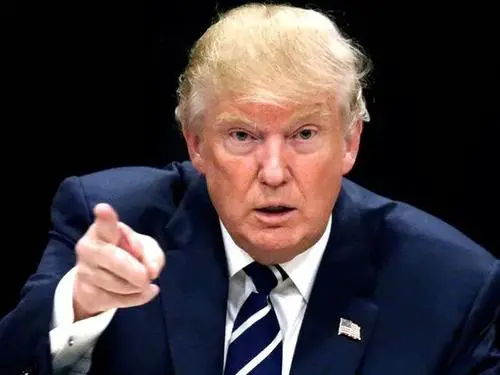The fifth African Union - European Union (AU-EU) summit that has just ended in Abidjan, Cote d'Ivoire provided a key moment and opportunity to strengthen political and economic ties between the two continents.
The summit came at a time Africa-China cooperation is making new breakthroughs and waxing strong while Europe, particularly the European Union (EU) is still struggling to significantly create an impact and enhance its relationship with Africa.
What we see in the changing nature of Chinese-African relations offers the European Union valuable lessons for how it too might redefine interactions with the African continent moving forward. But what can Europe learn from Africa-China relations?
First, let’s begin with what is wrong with EU-Africa relations
There are many reasons why Europe is not performing as well as China, India and Brazil in Africa, but there are three big ones in particular:
Gabon's President Ali Bongo Ondimba, Cameroon's President Paul Biya, France's President Emmanuel Macron and King of Morocco Mohammed VI talk while they prepare to pose for photographers during the 5th African Union - European Union (AU-EU) summit in Abidjan, Ivory Coast November 29, 2017.
-
In most parts of Africa, the mention of the name Europe or the European Union is synonymous with “regime change.” Many Africans believe that the former European colonial masters still have much influence (and negatively so) in deciding which leader lords over which country and when. French President, Emmanuel Macron indirectly admitted France’s neo-colonial tendencies in Africa when he said during the EU-Africa summit that “France will no longer dictate to Africa.” Europe’s obvious imperialistic agenda in Africa is sickening. One cannot develop a relationship of equality, or “win-win partnership” as the Chinese often say, by invading country after country in Africa with regime change in mind, leading to the installation of puppet governments like in Central African Republic, Libya, Mali, Somalia, you name the rest.
-
The EU is notorious for “economic sanctions” on the continent when it does not agree with any particular country or regime. Zimbabwe, Sudan, Kenya and Uganda are just some of the examples. The imposition of economic sanctions in selected African countries whenever a problem arises kills mutual trust and sustainable partnership. For the EU, it is either our way or you are sanctioned.
-
The EU still sees Africa as a suffering continent in desperate need of “aid.” This is wrong! Africans no longer believe in “handouts” or “aid.” Europe should move away from aid and concentrate on trade. EU “aid” has brought nothing but lamentation to Africa in the decades of its relationship with Africa.
Across the African continent young people under 25 who constitute approximately 60 percent of the continent’s population wants to trade and not aid from EU. They want the transfer of technology, trade partnership and exchange of economic programmes with Europe.
African Union Commission President Moussa Faki Mahamat, Guinea's President and President of the African Union Alpha Conde, Ivory Coast's President Alassane Ouattara, President of the European Commission Jean-Claude Juncker and European Council President Donald Tusk talk during the closing session of the 5th African Union - European Union (AU-EU) summit in Abidjan, Ivory Coast, November 30, 2017.
What is China doing that is different?
China seems to have really understood “the African way” and doing just what the continent needs. While EU is busy creating NGOs, China is investing in Africa’s economies. Today, China is Africa's largest trading partner, the main investor and engineering contractor. In absolute terms, this trade dynamic has seen African exports quadruple from 142.4 billion US dollars in 2000 to over 550 billion US dollars in 2014.
China-Africa cooperation is now entering a new stage of transformation and upgrade, which is shifting from government-led assistance to market-driven trade and enterprise investment, from general merchandise trade to production capacity cooperation and processing trade, from project contracting to investment, construction and operation.
The African Union Conference Center, headquarters of the African Union in Addis Ababa, Ethiopia, is one of the biggest aid projects built by China.
China firmly believes in equality, mutual support and mutual benefit with its African partners and has stayed off internal politics and therefore does not get involved in regime change. No African country (at least officially) has been sanctioned economically by China.
This has resulted in mutual trust which is central to any relationship that intends to be sustainable. Whether or not China’s engagement in Africa fits existing standards shouldn’t preclude us from exploring the ‘value added’ of China’s engagement, which is particularly significant, compared to other countries’ cooperation.
How the EU can improve on its relationship with Africa
Local women attend an interview launched by a Chinese factory in Ethiopia's capital Addis Ababa on October 15, 2011.
For the EU to enjoy the cordial relations that exist between Africa and China, it must let-go entirely and genuinely of its policy of interference in “African affairs” and see Africans more like worthy partners rather than former slaves or former colonies. It could also make use of its communication.
Unlike China, it is much easier for Africans and Europeans to communicate with each other at international conferences because many European languages are also official languages in much of Africa. This can facilitate trade relations and even build trust to an extent. Importantly, it must concentrate on win-win trade and not “aid.”
(CGTN)
 简体中文
简体中文

